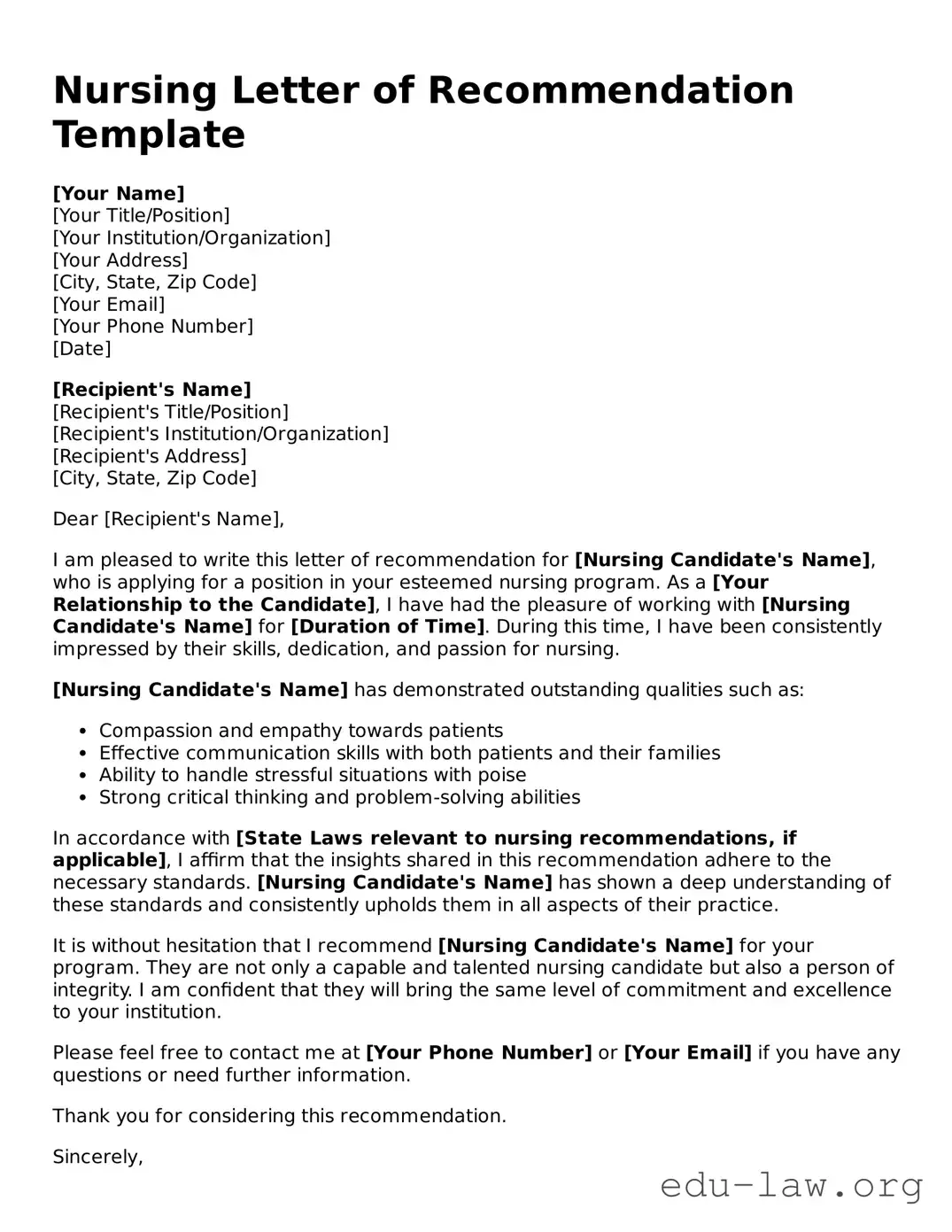What is a Nursing Letter of Recommendation form?
A Nursing Letter of Recommendation form is a document that a nursing applicant asks a qualified individual to complete. This letter supports the applicant's credentials and demonstrates the individual's suitability for nursing school or a specific nursing job. It typically includes insights into the applicant's skills, work ethic, and character.
Who should I ask to write my letter?
It is best to ask someone who knows you well in a professional or academic setting. This could include professors, nursing supervisors, or other healthcare professionals. They should be familiar with your skills, abilities, and experiences relevant to nursing. Aim for individuals who can provide a thoughtful and personalized recommendation.
What should the letter include?
The letter should highlight specific experiences that demonstrate your qualifications and strengths. It should mention your clinical skills, teamwork, leadership abilities, and any relevant accomplishments. Personal anecdotes can significantly enhance the letter, offering concrete examples of your abilities and character.
How should the letter be formatted?
The letter should be typed on professional letterhead if possible. It should include the writer's name, title, and contact information. The content should be clear and concise, typically one page in length. The writer should formally address the recipient and close with their signature.
Is there a deadline for submitting the letter?
Yes, deadlines vary depending on the nursing program or job application. Make sure to confirm the specific date with the program or employer. It’s wise to give your recommender ample time, usually at least two to four weeks, to write and submit the letter before the deadline.
Can I see the letter before it’s submitted?
While it is courteous to ask, some recommenders may prefer to keep the process confidential. It can help build trust and encourage a more honest evaluation. If you want to see it, ask politely and respect their decision if they decline.
Should I provide my recommender with any information?
Yes, providing your recommender with your resume, personal statement, or details about the program you are applying to can be very helpful. This information allows them to tailor the letter to better reflect your qualifications and aspirations.
What if my letter of recommendation is not submitted on time?
If your letter is not submitted by the deadline, contact the nursing program or employer to inquire about their policy. They may allow for late submissions under certain circumstances. It is crucial to communicate with your recommender and ensure timely submission to avoid any issues with your application.
